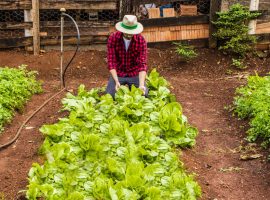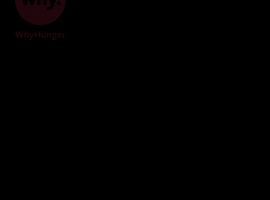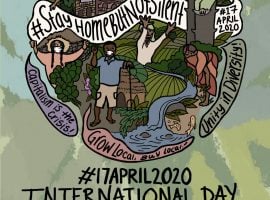 Image from Global Exchange’s Anti-Oppression Reader
Image from Global Exchange’s Anti-Oppression Reader
WhyHunger is an organization committed to growing into anti-oppression practices as we work towards social justice and equity for all people. Like many individuals and organizations doing this type of work, we are continually learning, questioning and re-committing ourselves to living that practice. But what does “anti-oppression” actually mean and how can institutions develop anti-oppression lenses to their work? The following are thought-provoking and educational resources our staff uses to explore oppression within ourselves and the system as a whole so as to be better allies and learning partners to those we serve and collaborate with.
WHITE PRIVILEGE: UNPACKING THE INVISIBLE KNAPSACK Peggy McIntosh’s article White Privilege: Unpacking the Invisible Knapsack is used widely by activists, social workers and educators to discuss white privilege, institutional racism, oppression and accountability. This provocative document breaks down some of the unacknowledged societal benefits and unearned privileges granted to white people. Looking at her own circumstance as a white woman, McIntosh describes how this privilege appears in her everyday life from things like finding bandages matching her own skin color to going shopping without being harassed or followed. McIntosh emphasizes the importance of recognizing the privileges and power each of us have or do not have based on our identities as the crucial first step to achieving equity, noting that “Describing white privilege makes one newly accountable.” She leaves the readers to answer the question of how that “arbitrarily-awarded power” will be used to reconstruct the larger power system and achieve justice.
GLOBAL EXCHANGE ANTI-OPPRESSION READER Global Exchange’s Anti-Oppression Committee (AOC) created an extensive document full of articles, tools, stories, essays and poems designed to help the reader explore the concepts surrounding anti-oppression practices and learn how to develop and use an anti-oppression lens. Divided up into sections, the Anti-Oppression Reader contains short pieces on all types of prejudices from ableism to sexism, tools for change and personal stories that inspire. There is also an excellent glossary that clearly and simply defines different terms related to oppression and provides a great starting point for readers new to the framework.
BLACK GIRL DANGEROUS Author Mia McKenzie’s website Black Girl Dangerous is a reader-funded, non-profit project to amplify the voices of queer and transgendered people of color. The blog offers articles, videos and resources about race, queerness, gender, class, social justice and their intersections. A new web series called “Qraftish,” offers short videos that follow a young woman as she contemplates relevant issues including everyday microaggressions and speaking out against racist and oppressive comments when the comment does not apply to oneself.
THE CATALYST PROJECT The Catalyst Project is an organization working to build powerful multiracial movements that can win collective liberation. As part of that vision they help to organize, train and mentor white people to take collective action to end racism and work as allies to support efforts to build power in communities of color. The site provides toolkits, workshops, resources for analysis and strategy, and training opportunities for organizations. This can be a great place for non-profit organizations that are committed to anti-oppressive practices to find resources and inspiration.
This list is by no means exhaustive and we invite you to use the comments section below to add your thoughts and other resources that you find useful!





